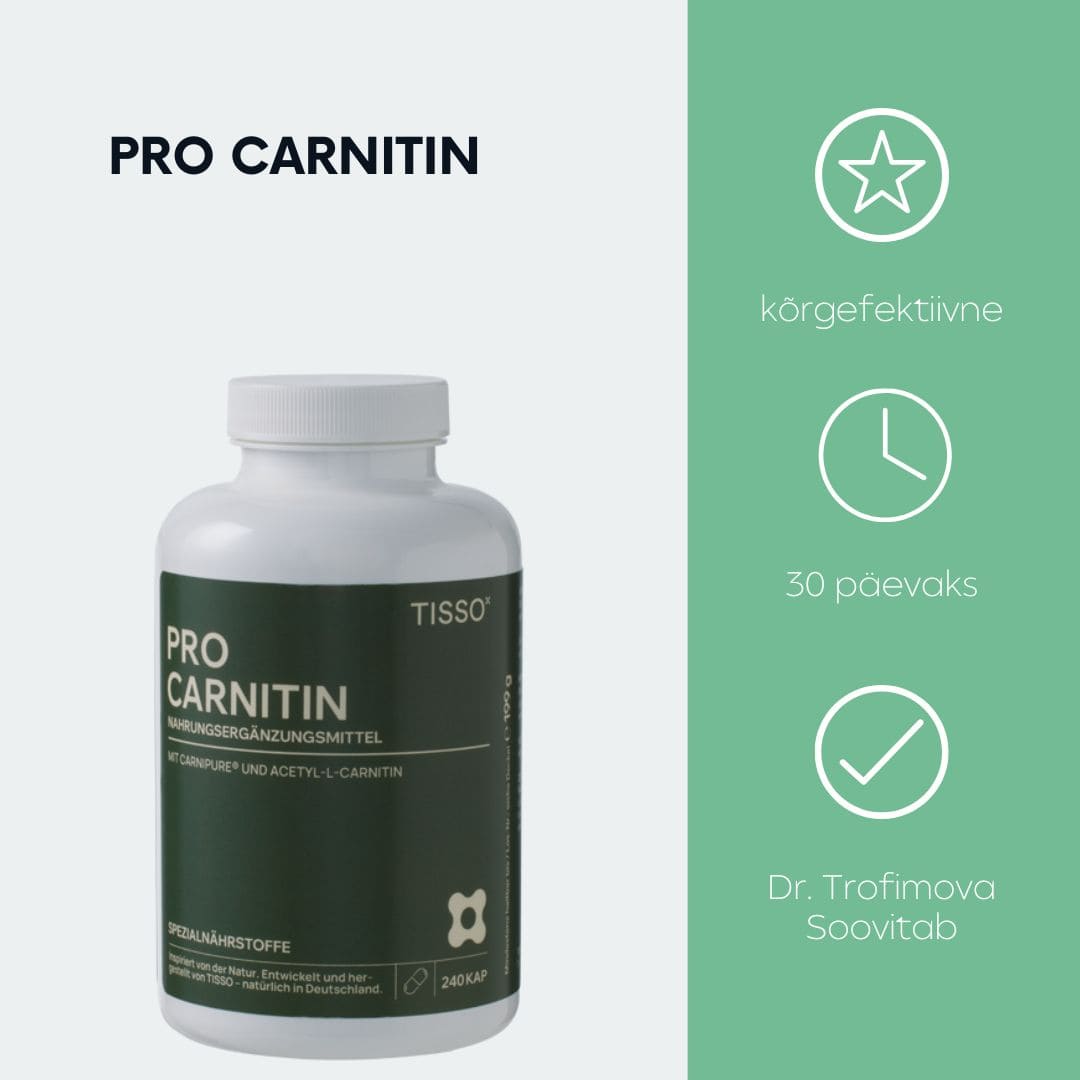Description
L-carnitine is formed from two essential amino acids, L-methionine and L-lysine. However, the body covers 90 percent of its daily need for carnitine not through its own synthesis, but through food. In the body, carnitine acts as a transport agent for long-chain fatty acids to cells, so they can reach the mitochondria, which is the site of fat burning where vital energy is obtained from fats.
Important organs, such as the heart, primarily derive their energy from fats. The heart, along with skeletal muscles, stores more than 95 percent of the body’s carnitine. Carnitine is mainly found in animal products, such as red meat. In contrast, plant foods contain only very small amounts. Therefore, a deficiency can occur if there is too little meat and other animal products in the diet.
The body covers only 10 percent of the daily need for L-carnitine through its own synthesis. To do so, the body needs two essential amino acids, L-methionine and L-lysine, as well as cofactors like vitamin C, vitamin B3, vitamin B6, and adequate amounts of iron.
Special life circumstances, such as professional sports, diets, pregnancy, and breastfeeding, can also increase the need for L-carnitine, leading to a deficiency. Choline is important for the body’s synthesis of phospholipids. These compounds are essential components of our cells—especially in the cell membrane and in the membranes of most cell organelles, such as mitochondria, where vital energy is produced. Therefore, choline is also crucial for fat metabolism.
In addition, choline helps ensure that carnitine reaches the cells and triggers energy production from fatty acids. The body produces choline itself, but the amount is not sufficient to fully meet the need. Therefore, we have combined it directly with carnitine in our product. Since L-carnitine prepares fatty acids for energy production and promotes muscle mass growth, it can simultaneously have a positive effect on weight loss. Muscles consume a lot of energy and, as a result, burn a lot of fat.
Of course, a healthy lifestyle, along with a balanced diet, adequate fluid intake, and appropriate exercise, is very important for achieving long-term weight loss.














